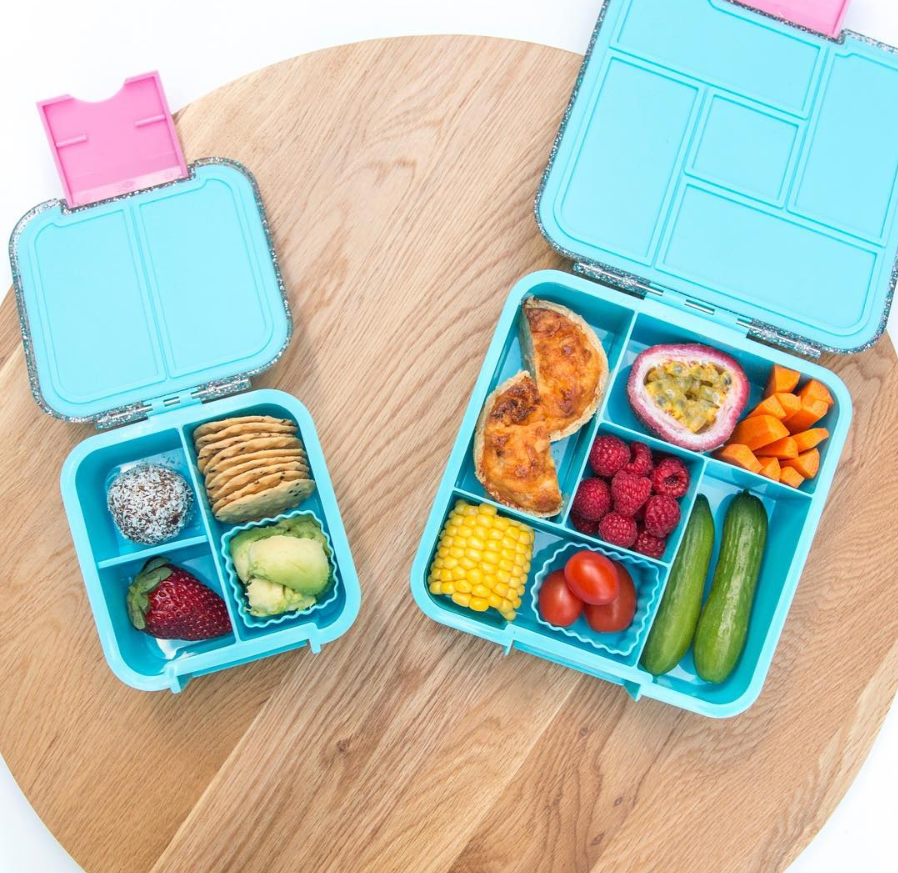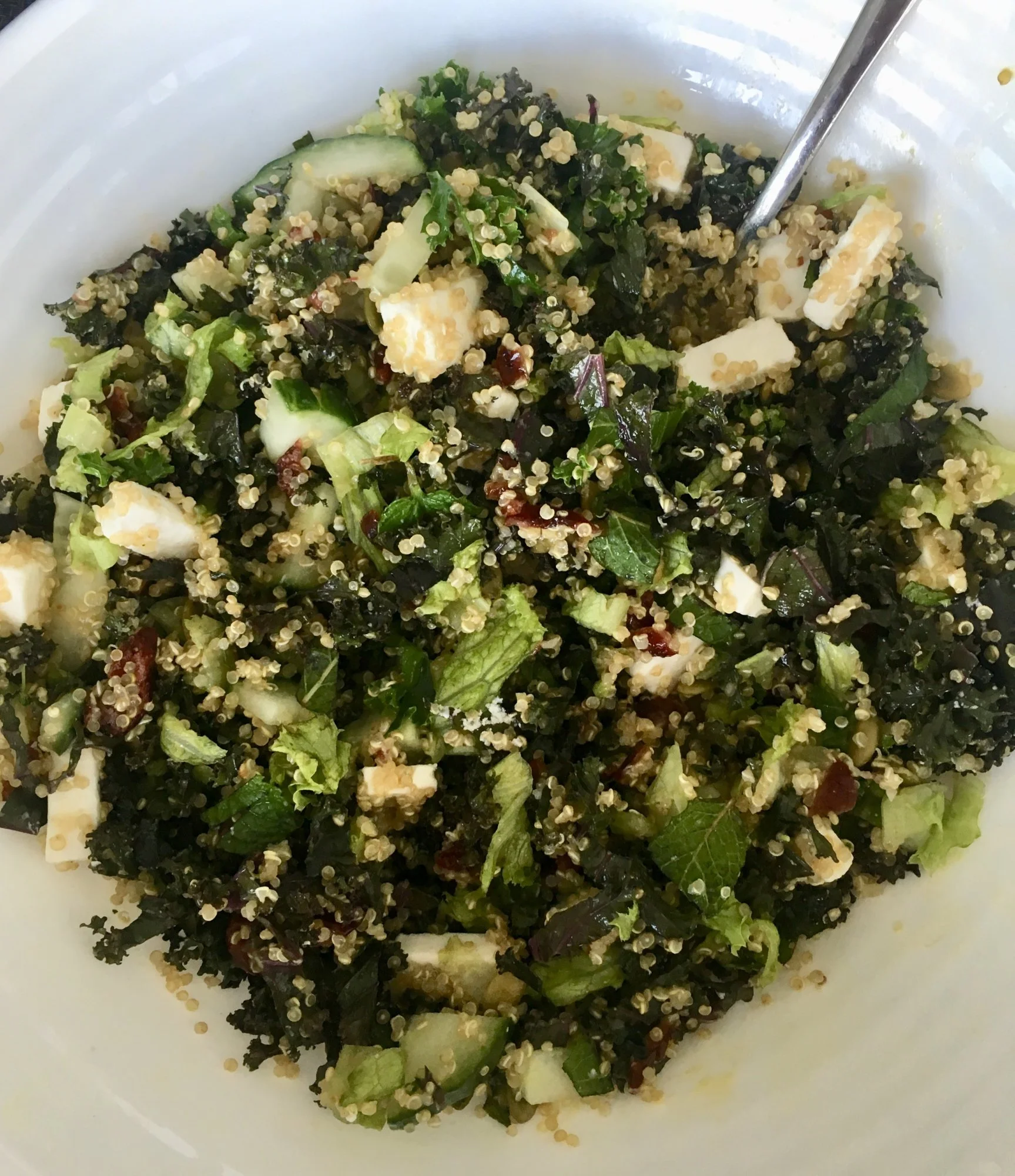These pancakes offer a relaxed weekend (or even weekday!) breakfast with an iron power punch.
This plant-based recipe is perfect for an iron packed punch with approximately 5mg of iron per serve, which provides 36% of the recommended daily intake of iron.
Written by Vanessa Tregoning, Student Dietitian and Intern with Feel Fresh Nutrition
Are you feeling tired? Difficulty concentrating? Irritable? Dizziness? Feeling cold?
These are just a few of many common symptoms that are associated with iron deficiency (1). Understanding what iron does in our bodies, what deficiency can look like and how to prevent it can help you stay healthy.
What is iron?
Iron is an essential mineral that has plays vital role in supporting health and wellbeing. Its main functions are:
To transport oxygen around the body – Every cell in the body needs oxygen. Iron in the haemoglobin of red blood cells helps with this by allowing oxygen to be carried from the lungs to the rest of the body.
Enables a healthy, functioning immune system – Adequate iron stores are dependent on a well functioning immune system. If iron stores are low, your body may be more prone to infections as the cells who are responsible for fighting infections rely on adequate iron stores.
Providing adequate energy – Iron is needed for the chemical reactions that occur in your body to turn food into energy (2).
What is iron deficiency?
When insufficient iron is received by the body, iron deficiency can result. Without enough iron, the body cannot produce enough haemoglobin to carry oxygen around the body, nor cannot it produce enough of the cells that are responsible for fighting off colds and infections. Low iron also affects the amount of energy being produced from food. As a result, iron deficiency can leave you feeling short of breath, more prone to infections and constantly tired or fatigued.
Unfortunately, iron deficiency is one of the most common micronutrient deficiencies in the world, affecting 30% of the world’s population (3).
8 out of 10 toddlers don’t meet the recommended daily intake for iron (4)
At seven months, a baby needs more iron than their dad (2)
14% of children under the age of two are iron deficient 5()
Over 1/3 of teenage girls don’t achieve their daily iron requirements (6)
1 in 14 New Zealand women are low in iron (6)
So where can I get my iron from?
There are two forms of iron found in foods – haem (usually from animal foods) and non-haem (usually from plants, but also found in animal foods) iron sources. The body absorbs haem iron easier than non-haem.
Haem iron food sources
Beef, lamb, pork, venison, liver, kidney, poultry, oysters and mussels.
Non-haem iron food sources
Bread, fortified breakfast cereals, beans, lentils, eggs, nuts, fruit and vegetables.
Top tips to improve iron intake
Eat your veggies. Eating meat with plant foods (vegetables, wholegrains, legumes, fruit) can help the body absorb more non-haem iron by up to four times! (2)
Get your Vit C. Vitamin C can help the absorption of haem and non haem iron from a meal into your body. Vitamin C rich fruit and vegetables such as capsicum, broccoli, cauliflower, tomato and citrus can be paired with your haem and non-haem iron foods to increase absorption.
Not all iron is created equal. As mentioned, iron is available in two forms in food – haem and non-haem. Haem iron sources in animal foods are better absorbed by the body (15-35% absorbed) than non-haem sources (2-20%). When choosing non-haem iron sources choose good quality sources such as dark green leafy vegetables (spinach and broccoli), legumes (lentils and soybeans), grains (quinoa and brown rice), nuts and seeds.
Keep meals tannin free. Tannins in tea (and to a lesser extent coffee) can reduce the amount of iron we can absorb from food. Try to drink tea and coffee between instead of with meals.
Don’t just pop pills. Iron supplements should only be taken under medical supervision. In the long term, food sources of iron are the safest and healthiest way to maintain iron levels. Frequent use of iron supplements can interfere with the absorption of zinc, copper and calcium.
Be extra iron smart if you’re at risk. Infants, women during their reproductive years, teenagers, pregnant and breast feeding mothers, athletes and very active people, vegetarians/vegans and the elderly are all at high risk of being iron deficient (7). If you’re in one of these groups and are feeling some of the symptoms of iron deficiency, it might be a good idea to have your levels tested.
If you have ongoing concerns about your health contact your GP or for tailored nutrition advice book a chat with our team at Feel Fresh Nutrition.
Mayo Foundation for Medical Education and Research, (MFMER). Iron Deficiency Anaemia. (1998-2020). Retrieved from Mayo Clinic.
National Health and Medical Research Council (NHMRC). (2006). Nutrient Reference Values for Australia and New Zealand including Recommended Dietary Intakes. Canberra: NHMRC, Wellington: Ministry of Health.
World Health Organisation. (2020). Micronutrient Deficiencies . World Health Organisation. Geneva: Switzerland. Retrieved from WHO.
Wall, CR et al. (2008). Ethnic variance in iron status: is it related to dietary intake? Public Health Nutr 12 (9):1413-1421.
Grant, CC et al. (2007). Population prevalence and risk factors for iron deficiency in Auckland, New Zealand. J Paediatr Child Health 43: 532-538.
University of Otago and Ministry of Health. (2011). A Focus on Nutrition: Key findings of the 2008/09 New Zealand Adult Nutrition Survey. Wellington: Ministry of Health.
World Iron Awareness Week. (2020). Retrieved from Iron Week.
Noticing changes in your body as you approach menopause? Kimberley shares some advice on how to navigate through these changes.
Written by Kavneet Kaur Registered Nutritionist, Feel Fresh Nutrition
With all the added worries and concerns that COVID-19 has brought to our everyday lives, taking good care of our mental health has never been more important. Some NZ scientists have already predicted a rise in post-traumatic stress disorder (PTSD) as an aftermath of the virus1. Stress and diet have a complex interplay with each other and it’s evident that someone eating a healthy, balanced diet is going to have far less impact on their health under stressful situations than someone eating a poor diet. As is the case with other health concerns, the right kind of food choices can have a healing impact on our bodies in these challenging and difficult times as well.
THIS ARTICLE HAS BEEN WRITTEN FOR OUR FRIENDS AT SOUTHERN CROSS.
THE FULL VERSION CAN BE FOUND ON THEIR SITE, STAYINGWELL.
STAYINGWELL IS A FREE SOUTHERN CROSS WELLNESS GUIDE TO STAYING STRONG, ACTIVE AND ABOVE ALL HEALTHY.
Written by Danijela Unkovich, Registered Nutritionist, Feel Fresh Nutrition
Over the last few months, the world has changed dramatically. Our lives, often entrenched in routine and habit, have, for many, flipped on their heads.
This flip may be impacting eating habits too - if so, you’re not alone! With changes to the daily routine, little ones at home 24/7, a recommendation to shop less, understandable stress and anxiety, and possibly a busier household; we might be struggling to find a routine and our usual kitchen groove.
In difficult times that are outside of the norm, it’s important to meet ourselves where we’re at, go easy and try our best to adapt accordingly where possible. Your day-to-day has likely changed - this may call for flexibility on how things are usually done.
Here are some ideas for shopping and meal planning for your household, which might help things work a bit easier on the kitchen front. Not all may be relevant to your situation - so take what’s needed:
THIS ARTICLE HAS BEEN WRITTEN FOR OUR FRIENDS AT SOUTHERN CROSS.
THE FULL VERSION CAN BE FOUND ON THEIR SITE, STAYINGWELL.
STAYINGWELL IS A FREE SOUTHERN CROSS WELLNESS GUIDE TO STAYING STRONG, ACTIVE AND ABOVE ALL HEALTHY.
Written by Michaela Johnstone, Nutritionist, Feel Fresh Nutrition
Moving into heightened alert levels brought many different challenges for New Zealanders, not least how to maintain a balanced and healthy lifestyle. The rapid change of pace we’ve all experienced is bound to impact on our physical and emotional health. Nutritionally speaking, isolation brought a great opportunity for those of us wanting to improve our health and work on our relationship with food. Why? Because it gave many of us more time to spend planning, preparing and enjoying our meals and snacks each day! So we decided to have our nutrition experts at Feel Fresh Nutrition compile their top tips for eating well – and offer up some healthy habits which can be incorporated into your lockdown routine – and beyond.
THIS ARTICLE HAS BEEN WRITTEN FOR OUR FRIENDS AT SOUTHERN CROSS.
THE FULL VERSION CAN BE FOUND ON THEIR SITE, STAYINGWELL.
STAYINGWELL IS A FREE SOUTHERN CROSS WELLNESS GUIDE TO STAYING STRONG, ACTIVE AND ABOVE ALL HEALTHY.
Written by Julianne Taylor, Registered Nutritionist, Feel Fresh Nutrition
Our extended summer of spectacular sunny days appears to be finally coming to a close. And as if the chillier weather alone wasn’t enough to signal it’s time to shore up our immune systems – switching from salads to comfort food like soups and casseroles – the massive global changes we’ve seen recently would seem to seal the deal.
Yes, we’re all in the same boat to some extent, dealing with uncertainty and adapting to a very different world. Which also makes now a great time to give some thought to how we each support our own personal wellbeing. After all, taking control and taking action is a great way to curb the anxiety and stress that inevitably comes with these troubled times.
Feeling on top of things mentally and being your best self physically will not only give you something to focus on over the next few weeks, it will also help your body to cope with the challenges that change brings. In other words, boost your immune system.
So in order to understand how important the role food plays in supporting our wellness, let’s first take a look at how our immune system protects our body.
This article has been written for our friends at Southern Cross.
The full version can be found on their site, StayingWell.
StayingWell is a free Southern Cross Wellness guide to staying strong, active and above all healthy.
Photo by Analise Benevides on Unsplash
Ideas for healthy entertaining!
Tips and tricks for eating healthier when dining out!
Tips and ideas for preparing healthier lunchboxes!
The perfect fresh accompaniment with corn chips as an entree, or with Mexican style cuisine!
Today on the blog we’re sharing some of our favourite salad recipes that’ll hopefully inspire you to get busy in the kitchen. Enjoy!
This one is full of flavour - a great salad to make and enjoy across the week at lunch.
Breakfast - the morning meal that ‘breaks-the-fast’. Our first bite of a day can make a big difference to energy, concentration, memory and mood. Today we’re sharing some of our favourite breaky ideas!

















